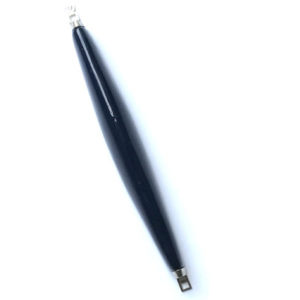Fair Trade Pixie Baby Rattle
$16.00
There are 6 different pixie rattles. They are all named after trees, plants and flowers in the garden and their colours are inspired by their names. People often ask why they have no faces. The Steiner theory is that if children’s toys have minimal expressions then the child is able to project it’s own emotions onto the toy and that this in turn leads to more flexible and creative play. So if you’re sleepy then you can pretend that your toy is sleepy too. We think it’s a lovely concept and hope you will enjoy all the little pixies.
We believe that these toys spread smiles worldwide: the ladies from Hathay Bunano who make them in Bangladesh smile because the toys bring them work, the parents smile because the toys keep their babies happy and enable them to shop with a conscience and the babies smile – well you can see why! We hope you love this little rattle as much as we do.
We love the rattle’s workmanship. This is our small contribution to supporting families in rural Bangladesh, to removing the need for economic migration to the cities, and to providing women with flexible working opportunities which are close to their homes. By purchasing this Fair Trade item, you are empowering artisans and promoting social justice by working directly with underprivileged artisans and paying them fair wages for handmade, quality products. Because of the fair wages artisans are paid, they are able to bring home enough enough money to support their entire families and send their children to school to receive an education.
This product is made entirely by hand with natural materials and as such there will be slight variations in size, colour and design in line with the unique nature of this product.
More Details
Materials: 100% organic cotton, polyester fill
Size: 6″ x 1 1/2″ x 3 1/2″
Fair Trade
Care: machine wash cold; tumble dry low
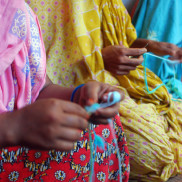
Meet the Artist: Hathay Bunano
Hathay Bunano, the maker of Pebble products, is a nonprofit fair trade organization in Bangladesh. Its mission is to create quality, flexible, local employment for rural women who are poor and often disadvantaged, and empower them to come out of poverty in sustainable fashion. Kahiniwalla was established in 2010 by Austin and Marita Miller. Upon his return from work as a product designer with Mennonite Central Committee's job creation program in Bangladesh, Austin wanted to continue helping to provide employment for the poor of Bangladesh and decided to do so by distributing their high quality handmade products in North America.

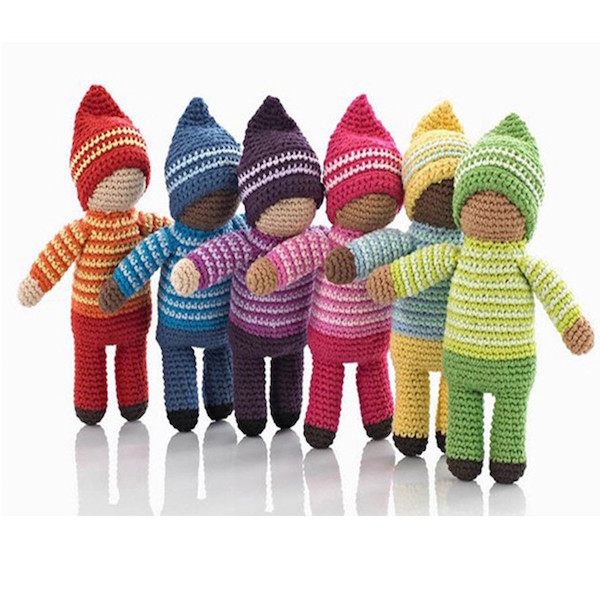
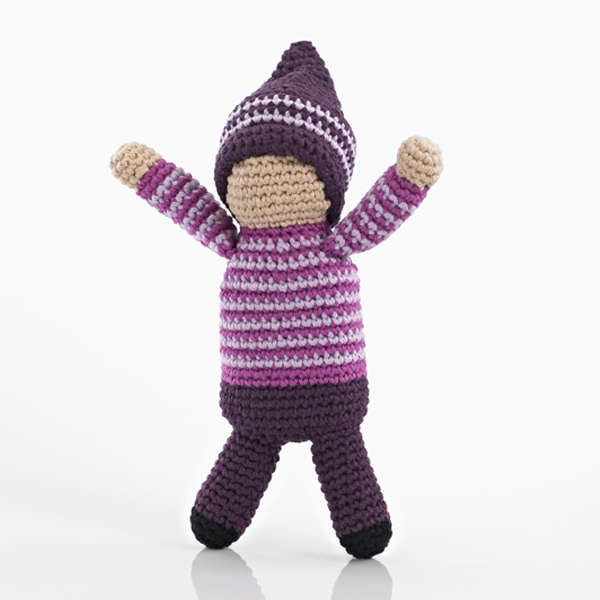
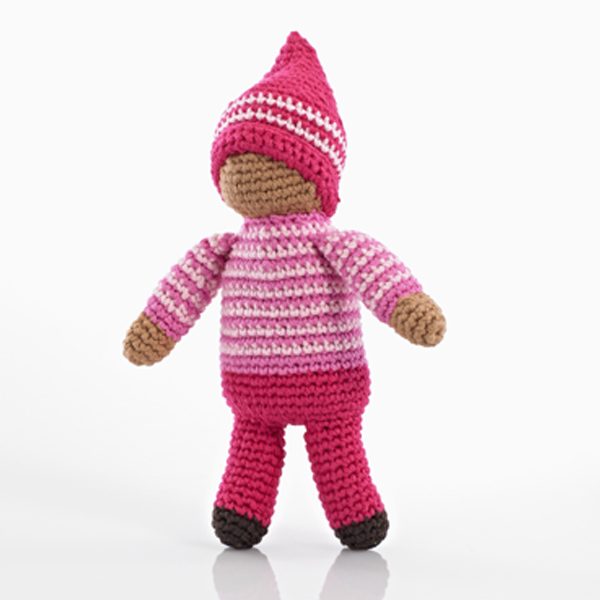
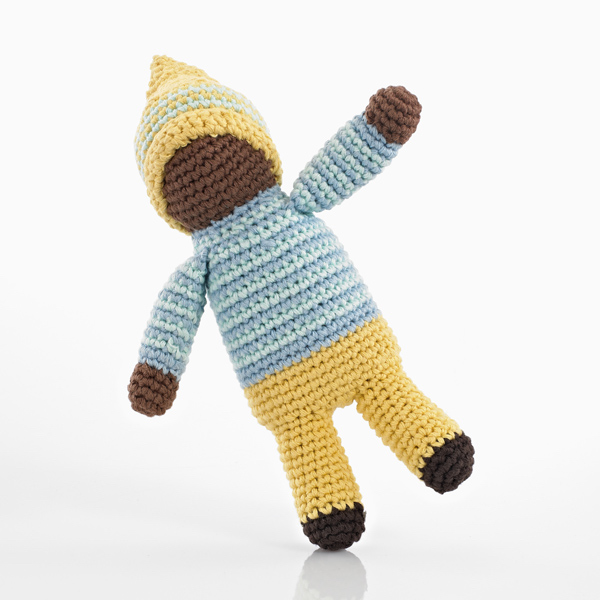
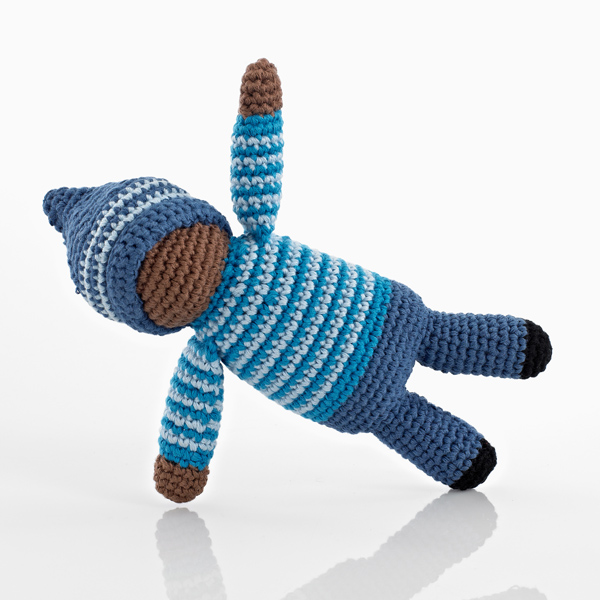
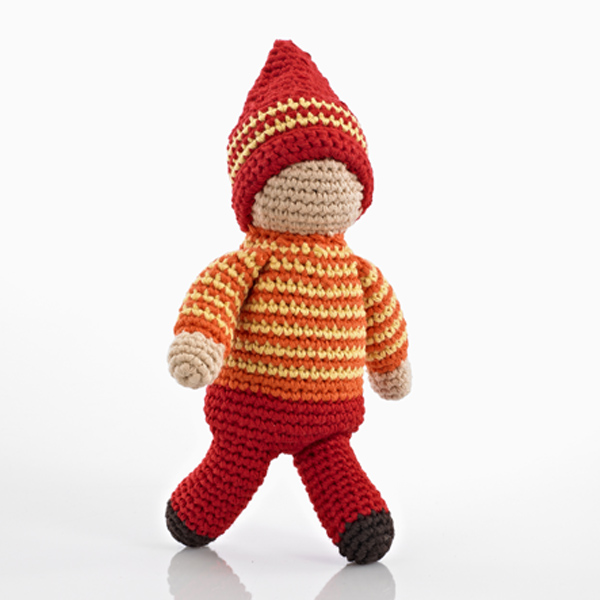
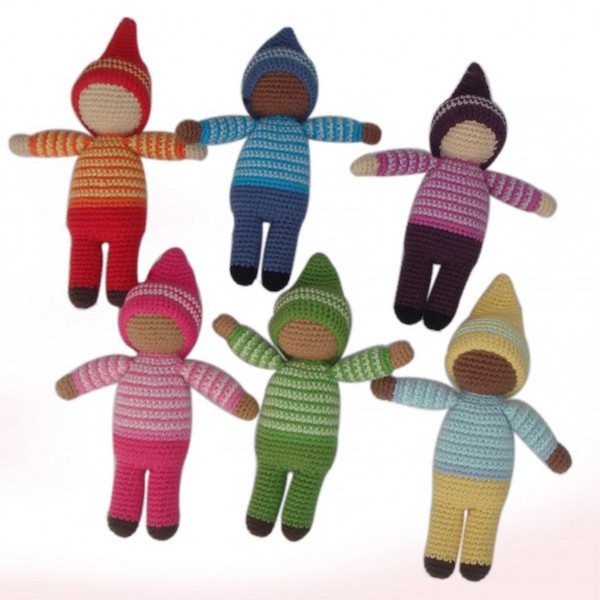
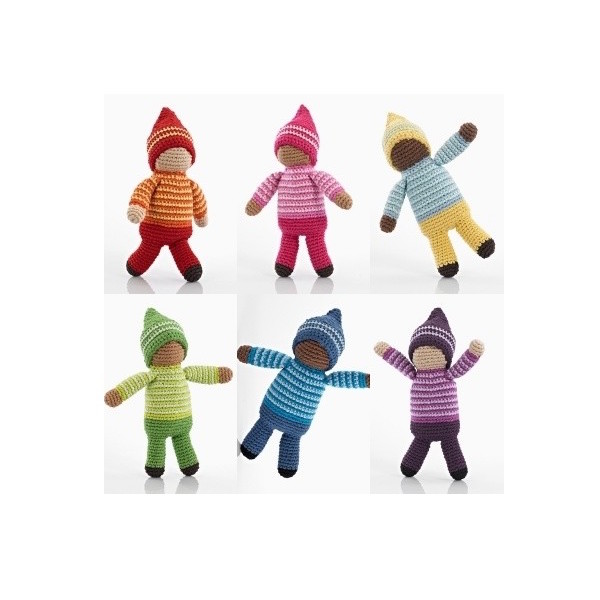





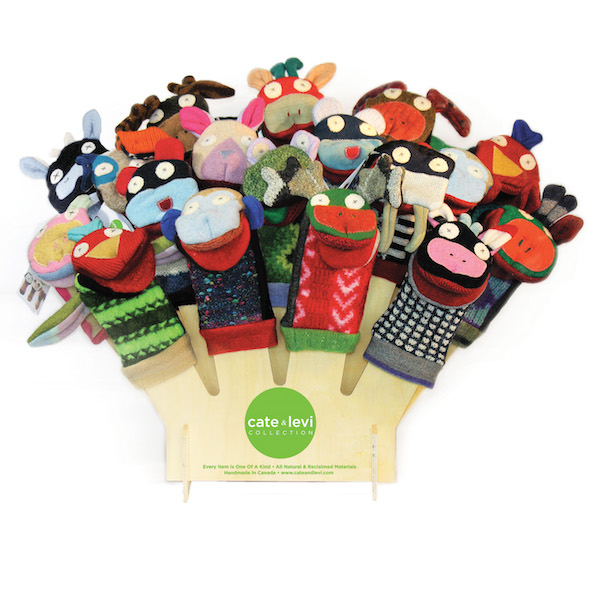
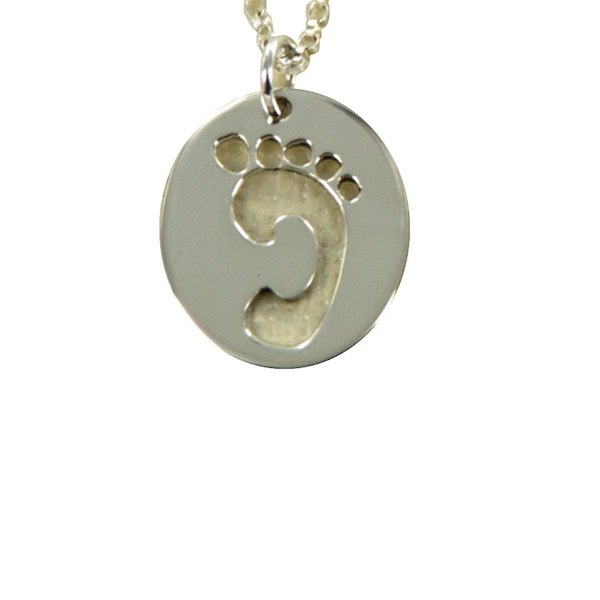

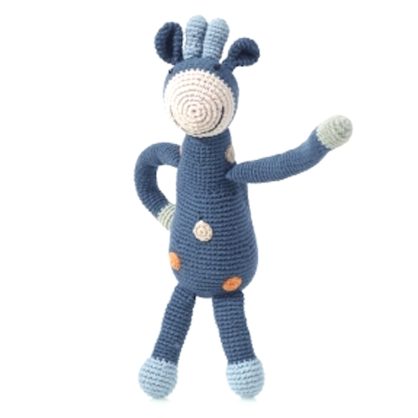 Fair Trade Rattle – Petrol Blue Giraffe
Fair Trade Rattle – Petrol Blue Giraffe 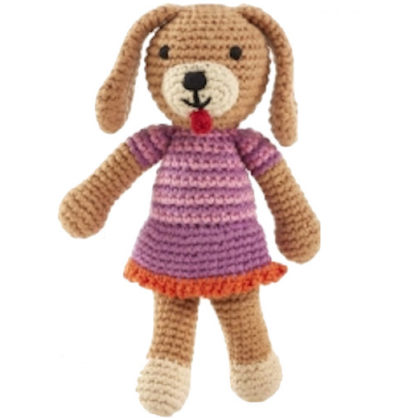 Fair Trade Small Baby Rattle – Puppy
Fair Trade Small Baby Rattle – Puppy 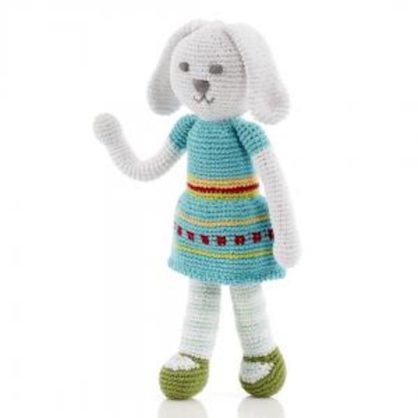 Fair Trade Bunny Friend
Fair Trade Bunny Friend 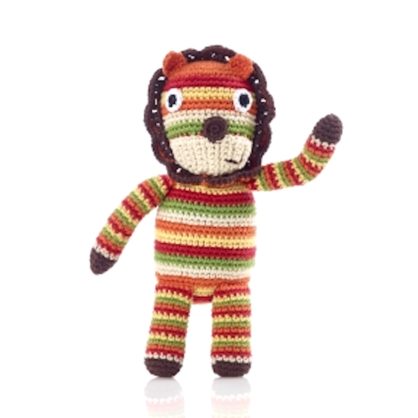 Fair Trade Baby Rattle – Lion
Fair Trade Baby Rattle – Lion 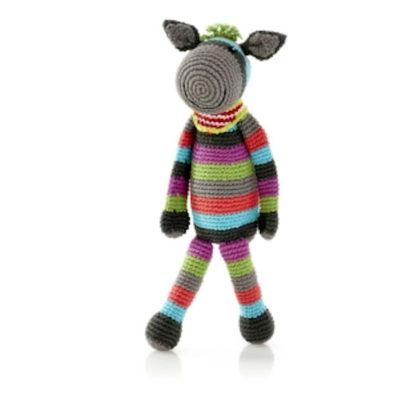 Fair Trade Baby Rattle – Donkey
Fair Trade Baby Rattle – Donkey 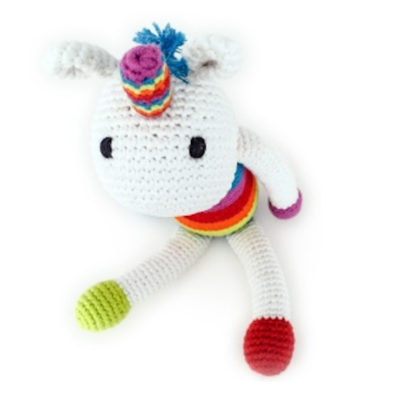 Fair Trade Baby Rattle – Unicorn
Fair Trade Baby Rattle – Unicorn 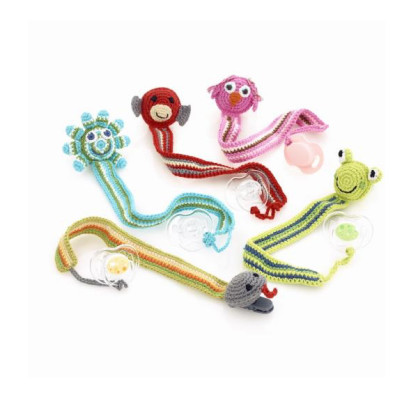 Fair Trade Baby Pacifier Clips
Fair Trade Baby Pacifier Clips 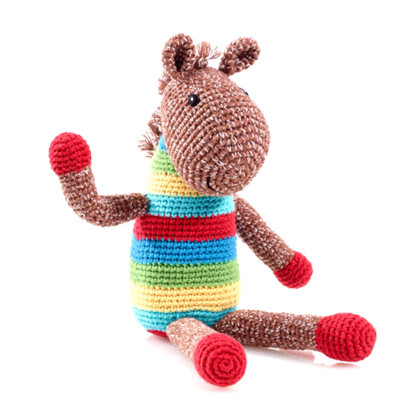 Fair Trade Baby Rattle- Horse
Fair Trade Baby Rattle- Horse 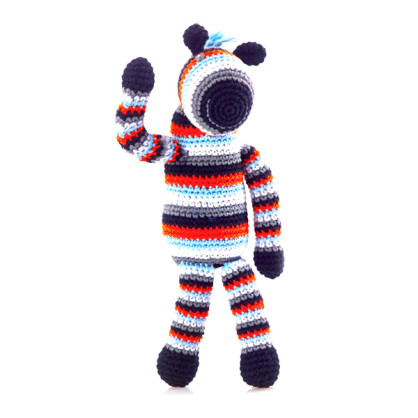 Fair Trade Baby Rattle- Zebra
Fair Trade Baby Rattle- Zebra 
